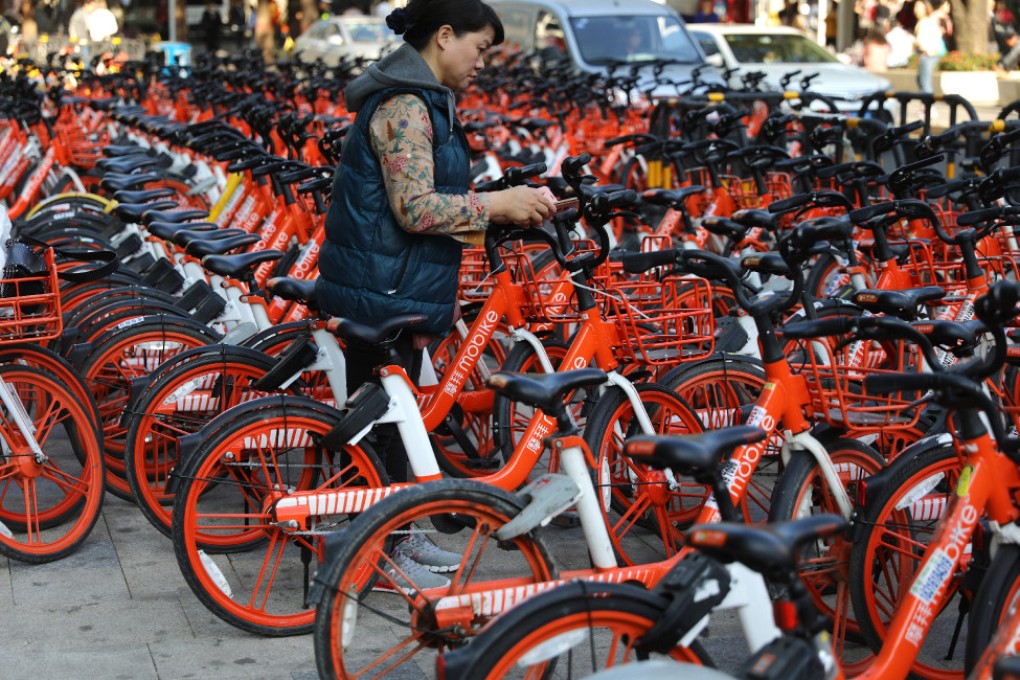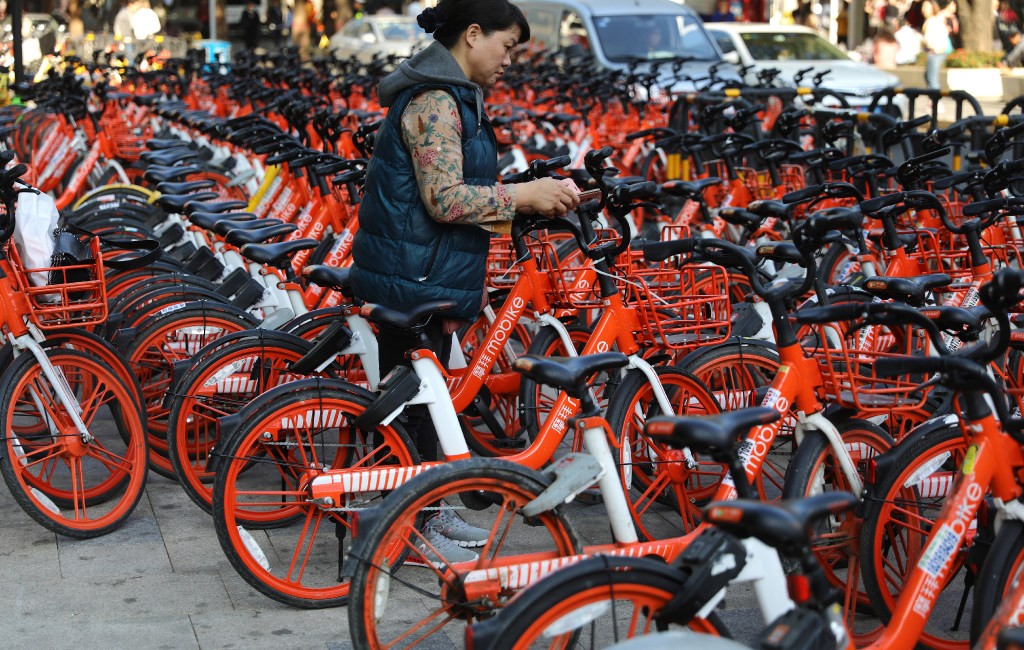Advertisement
Can bike sharing survive in China?
Mobike and others raise fees to save business following collapse of the once-leading Ofo
Reading Time:3 minutes
Why you can trust SCMP

This article originally appeared on ABACUS
The business of bike sharing is a tough nut to crack almost anywhere in the world. But nowhere is the industry’s rise and bust as dramatic as in China, where the number of startups have gone from more than 60 to a handful in the span of just three years. Can any of the survivors make it in the long run?
In the latest bid to turn around their businesses, Mobike, Hellobike and Bluegogo are all raising hourly fees to between 30 and 40 US cents, doubling previous rates.
(Abacus is a unit of the South China Morning Post, which is owned by Alibaba, a backer of Hellobike and Bluegogo’s owner Didi Chuxing.)
Advertisement

This may not seem that expensive compared with services in some places. Just take a look at New York’s Citi Bike, which costs a lot more at US$6 an hour. Rates have always been much lower in China, though, and now some Chinese customers say they might stop pedaling if the price hike continues.
Advertisement
One reason for this is that public transport is popular across China. Metro fares in Shanghai, for example, start at 45 US cents. Bus fare in Beijing can be as low as 30 cents.
“Everyone can go back to taking the subway,” wrote one Weibo user.
Advertisement
Select Voice
Select Speed
1.00x